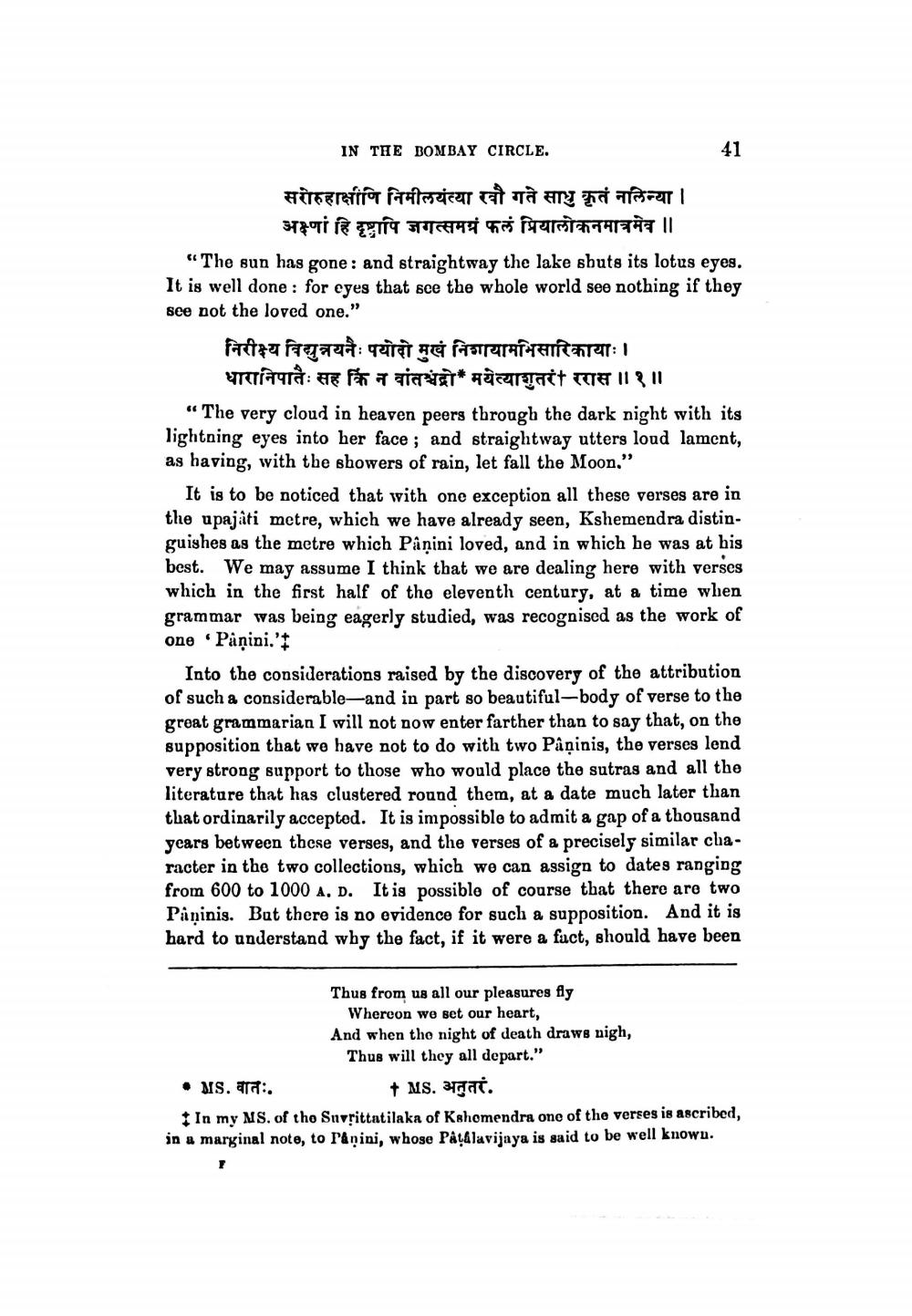________________
IN THE BOMBAY CIRCLE.
सरोरुहाक्षीणि निमीलयंत्या रवौ गते साधु कृतं नलिन्या ।
अक्ष्णां हि दृष्ट्वापि जगत्समग्रं फलं प्रियालोकनमात्रमेव ।। “The sun has gone : and straightway the lake shuts its lotus eyes. It is well done: for eyes that see the whole world see nothing if they see not the loved one."
निरीक्ष्य विद्युन्नयनैः पयोदो मुखं निशायामभिसारिकायाः।
धारानिपातैः सह किं न वांतश्चंद्रो मयेत्याशुतरी ररास ॥१॥ “The very cloud in heaven peers through the dark night with its lightning eyes into her face; and straightway utters loud lament, as having, with the showers of rain, let fall the Moon."
It is to be noticed that with one exception all these verses are in the upajâti metre, which we have already seen, Kshemendra distinguishes as the metre which Pâņini loved, and in which he was at his best. We may assume I think that we are dealing here with verses which in the first half of the eleventh century, at a time when grammar was being eagerly studied, was recognised as the work of one Paņini.'t
Into the considerations raised by the discovery of the attribution of such a considerable-and in part so beautiful-body of verse to the great grammarian I will not now enter farther than to say that, on the supposition that we have not to do with two Pâņinis, the verses lend very strong support to those who would place the sutras and all the literature that has clustered round them, at a date much later than that ordinarily accepted. It is impossible to admit a gap of a thousand years between these verses, and the verses of a precisely similar character in the two collections, which we can assign to dates ranging from 600 to 1000 A. D. It is possible of course that there are two Paņinis. But there is no evidence for such a supposition. And it is hard to understand why the fact, if it were a fact, should have been
Thus from us all our pleasures fly
Whereon we set our heart, And when the night of death draws nigh,
Thus will they all depart." • MS. :.
+ MS. Brat. In my MS. of the Savrittatilaka of Kshomendra one of the verses is ascribed, in a marginal note, to l'anini, whose Påtalavijaya is said to be well knowu.




